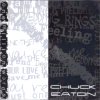| Monday, February 17, 2014 |  |
 |
 |
|
Hear Today's Songs |
 |
 
 
 |
 |


 A New Breed of Indie Artists
A New Breed of Indie Artists Free Music and Programs for Radio and Podasters
Free Music and Programs for Radio and Podasters"Going Viral" is Wishful Thinking at Best
|
I haven't done the math behind this next statement, but I am willing to bet it's not far off: The chance of going viral on YouTube, Facebook, Google+, Twitter - or any of the dozens of social media sites like Instagram, Linkedin, Stumbleupon, etc - is worse than winning a lottery. |
"Being consistent and never giving up are two attributes that you must hold on to when using social media, but buying a lottery ticket may be your best chance at success." |
Go into the indie artist communities, or radio industry trades, and there are all kinds of advice on how to go viral.
One example today is "Inside Radio" carrying a banner advertising "go viral." For artists, here's a November 2013 article titled "9 Ways To Make Your Music Go Viral." You can do a simple search and come up with dozens of more examples, but that would leave you with little time to absorb this: You don't make anything go viral - it just happens.
A few years ago I was consulting a large internet radio industry group. In its employment was a young marketing director who became disappointed every time they launched a new promotion with results that anyone can describe as "less than stellar."
Hitting a home run is an appropriate metaphor here. You create. Plan. Launch. Then sit and wait for throngs of fans to begin passing around whatever the content is that you think is brilliant. At some point it occurs to you that this is not going to happen, and certainly not every time. So you mope about failure. Don't.
For indie artists, always put your best effort into creation. Only you can decide if using social media is time well spent after that.
You create. The audience decides if it should be passed on; it's really that simple.
"Viralocity" is not a word I made up; I'll give credit to Doritos. It was used in a 2010 campaign that brought great response, though the totality of response was not from one piece of content but the cumulative content created by consumers. If I'm reading it correctly, the campaign's genius was from Zach Klein. (Go to his posting of this on Youtube and you'll find only 99 views - I'm three of these. Lightning seldom strikes twice.)
We've read about campaigns going viral, and even about individuals producing content which went viral because it was so bad. All share one thing: It was the choice of consumers to pass on the content. Nobody involved with creating the content did anything besides hitting the viral lottery to inspire this "sharing." It's interesting that not even Facebook's own "Viralocity" page went viral, stopping at 683 "Likes."
For those in the radio industry, you will do better not trying to exaggerate the simplicity of going viral. Just his morning a respected radio industry consultant issued a newsletter with this headline: "We went Viral," speaking of when radio created parody songs. Within were these words: "Today, these songs would have blown up online, being shared by thousands of (city redacted) listeners, reaching people around the world." No! They would not. To even suggest this reflects social ignorance that continues to drown the radio industry.
Do what you can to produce the best that you can. Post it and wait.
Being consistent and never giving up are two attributes that you must hold on to when using social media, but buying a lottery ticket may be your best chance at success.
Today's indie introduction is to...
| Dance Musc artist, Chuck Eaton |
 Hear Song |
That's All We Need Download Song
|
Give Chuck Eaton's "That's All We Need" a listen.
Add it to your playlist, free!
More Articles
 |
 |
 |
comments by Disqus |



